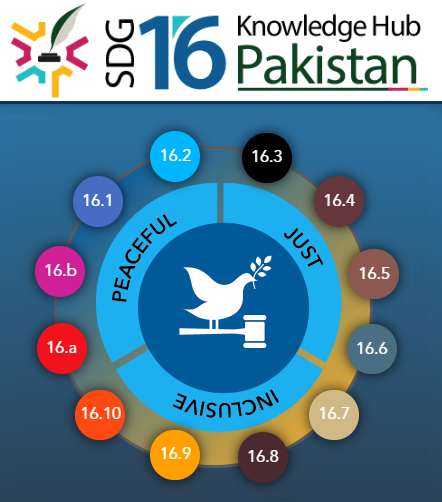

International Day for Judicial Well-being: A Global Call for Action (4 Mar, 2025)
Pakistan Ranks 129 out of 142 in the World Justice Project Rule of Law Index (26 Oct, 2024)
2024 Trafficking in Persons Report: Pakistan (24 June, 2024)
Pakistan ranks second-last in WEF Global Gender Gap Report 2024 (7 Mar, 2025)
Bureaucrats resisting govt’s civil service reform agenda

Mon, August 31, 2020
ISLAMABAD: The Imran Khan government is facing stiff resistance from the bureaucracy and in some cases from certain cabinet ministers in the implementation of the civil service reforms already approved.
A close aide to the prime minister confided to The News that what has already been approved on papers after months of deliberations is getting hard for implementation. “The bureaucracy is resisting strongly,” the source said, adding that it’s a challenge for the government to implement what has already been approved.
The PTI in its election manifesto had promised to privatise or revamp the loss-making state entities to save taxpayers’ hundreds of billions every year. Here, the source said that some cabinet ministers are found opposing the privatisation of these state organisations.
Recent changes made in the law to get rid of deadwood from the civil bureaucracy through early retirement mechanism has beenchallenged in the court of law, the source said lamenting that the bureaucracy is content with the status quo and does not welcome changes required to improve its performance that is vital for governance and service delivery.
Impediments are also being created to block reforms in the colonial system of ‘annual confidential report' that provides no substantive evidence of performance on the job or future potential. Introduction of objective-based evaluation system, it is said, is a major change that the present government wants but here too hurdles are being created.
In the present system, every second officer gets excellent and very good ACR, which is more linked with the officer’s connections and his ability to please his superiors than his output. The government wants to reform the system by allowing only 20 percent in the cohort to be categorised as outstanding, 60 percent as satisfactory, and 20 percent as below average.
Under the change the government wants, performance will also be related to promotion, so that the officer's training outcomes and placement in the promotion ladder will be determined by his or her performance. So there is an incentive for the officer to work hard because he or she wants to get promoted to the next grade. This categorisation, it is said, would also feed in early retirement policy. If an officer has not consistently performed satisfactorily and keeps falling in 20 percent or below average then his/her case would be placed before the committee for early retirement.
Under the present performance system, it would be difficult to identify officers who have received unsatisfactory ACRs for three years and the purpose of early retirement would be defeated in actual practice. So the new Performance Management System is the prerequisite for the success of the early retirement rules but the bureaucracy is not willing to adopt these changes.
Recently, the PM’s Adviser on Civil Reforms Dr Ishrat Husain had explained that the entire package of civil service reforms is part of an integrated, interwoven value-chain of human resources’ policies, which can’t be implemented in bits and pieces. A weak link in the chain, if left to itself, would not allow that qualitative change to take hold, he said, explaining that the value chain starts with recruitment induction, and then it goes to training, performance management, career progression and promotion policy, compensation and benefits, and finally retirement.
Publishd in The News on 31 August 2020
Copyright © 2026 pjn.org.pk








